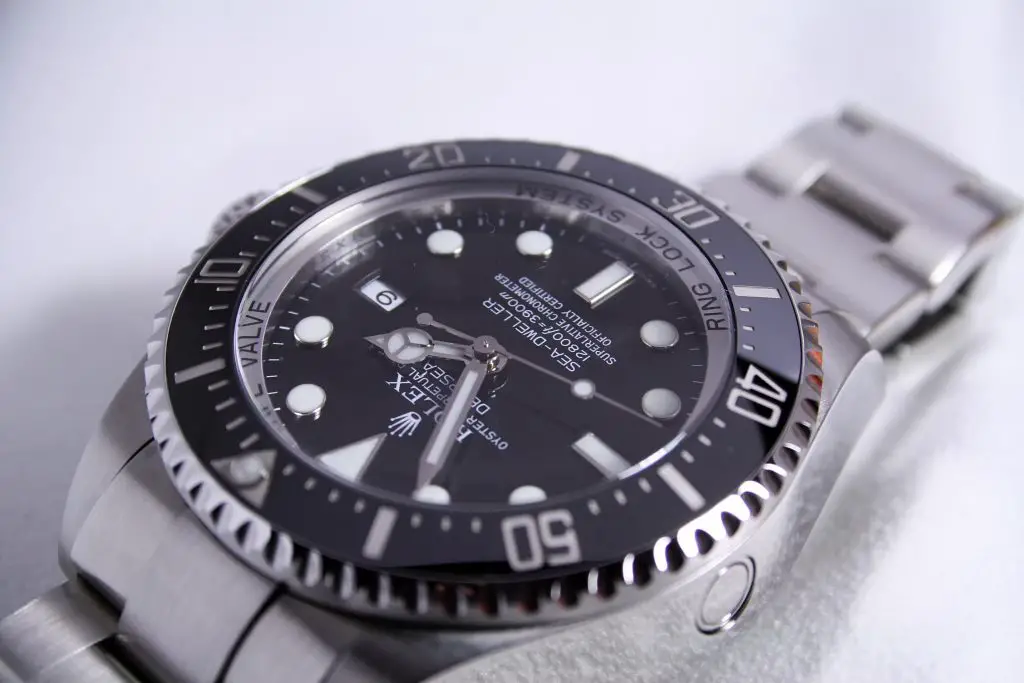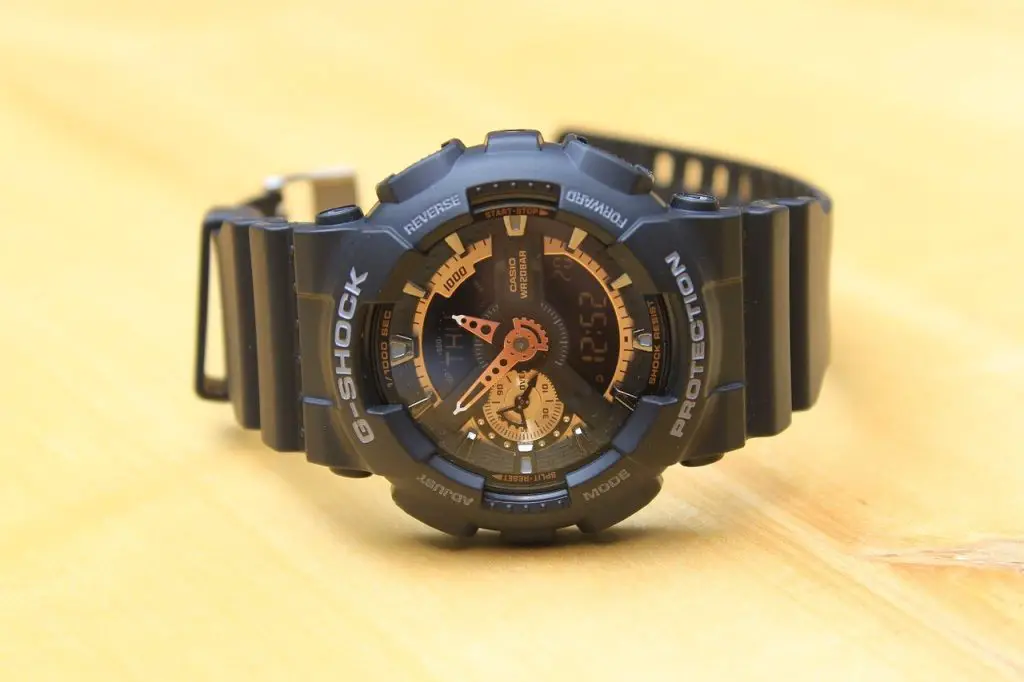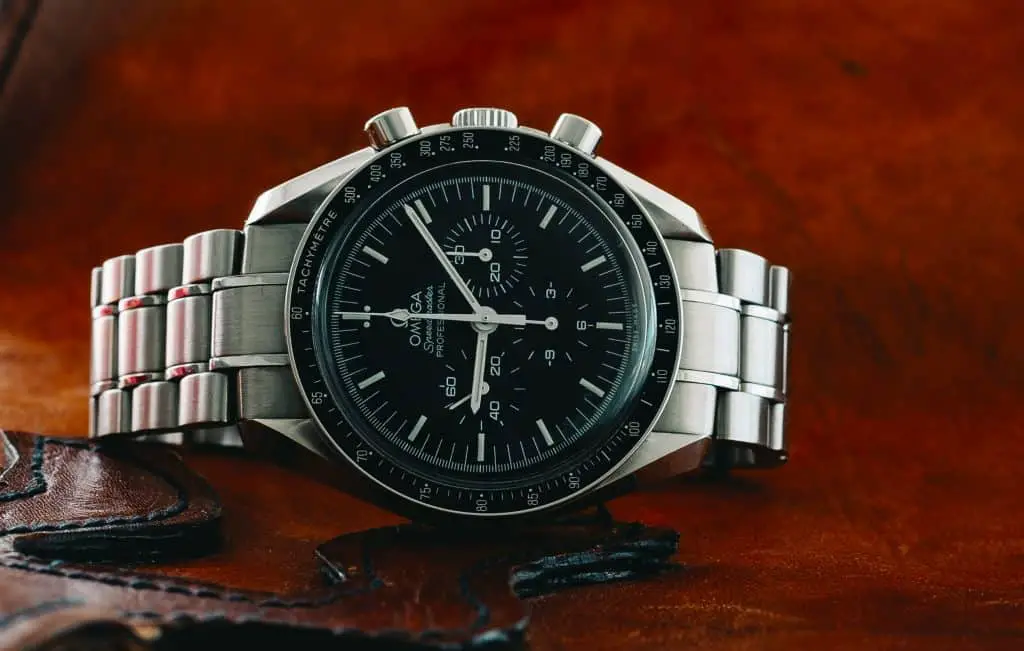
Keeping the looks of a timepiece pristine is one of the trademarks of a dedicated watch owner. However, keeping its value is also one of the aspects to consider. Here is where the question arises: does polishing a watch devalue it?
Polishing a collection watch will remove some of the metal and original design, thus reducing its value. For collector’s watches, keeping the most authentic condition possible is paramount. For less valuable timepieces, polishing is a standard service procedure.
This question has many side aspects to consider as well, though. In this post, I will break down everything you need to know to give the best possible care to your timepiece.
Table of Contents
Does A Polished Watch Hold Value
When a watch is polished, materials are removed, causing the value to drop. The removal of materials also causes the original style and shape of the timepiece to change. This alteration to its design can drastically lower the price.
In general, the essence of polishing is removing metal. For collector’s watches, any removal of materials would compromise the originality of the design. For any collector’s item, authenticity and a well-preserved design are pillars to the value.
The first step of polishing a watch is to even the surface. If there are deep scratches and dents, evening the surface would mean removing a considerable amount of material.
The more material removed, the more alterations to the original architecture of the watch. Harsh polishing can completely alter the lines and shape of the timepiece. Making the surface scratch-free could result in a loss in value.
Furthermore, if the watch is polished repeatedly within a short period, the alteration to its shape is no longer avoidable. Where a polish every other year or so could leave a minimal impact, regularly polishing a watch will end up removing the lines that gave character and style to the timepiece in the first place.
The polishing utensil and the brushing size will also influence the changes made to the surface of the watch. With too harsh brushes, the effects of the polish will be more noticeable and more harmful to the original design.
Some rusty Rolex watches have been sold for hundreds of thousands of dollars, compared to polished models sold for less than a quarter of that price. Polished models have a totally altered architecture that decreases their value.
The mastery of the person polishing the watch will also be influential to the value of the piece. When there is an expert behind the polish brush, the work will be performed mindfully. The expert will have special care for the original design of the watch.
Even with a master behind the polishing process, there is no ensuring that the architecture will stay unaltered. Sharp lines will suffer the most from the polish brush, as they will be softened and rounded by it.
The problem with polishing is that once the material is removed, there is no way back. There is no way to restore the lost material to bring back the original design of the watch. Most timepieces lose most of their value when the case is polished.
If you have an antique watch that holds great value, I would strongly recommend against polishing it. For most vintage watch dealers, an unpolished timepiece will double its value. For low-end commercial watches, there’s a different story.
Which Watches Should You Polish

Commercially mass-produced watches can be polished without worrying too much about their value. Antique watches with historical value or limited timepieces should not be polished to keep their original design intact.
If you plan on selling or trading a valuable watch, keeping its originality will make a huge difference in its price. In contrast, if you plan to keep the timepiece for yourself and you hate to see small imperfections on its surface, you might want to have it polished.
Remember that polishing is an irreversible process. Once you have removed material from your watch, there’s no going back.
If your watch is a commercial timepiece, then polishing it might be within the standard procedures when having it serviced. Nowadays, almost all watch service companies polish timepieces.
Don’t get obsessed with polishing the watch too often, though. You might think the ever-smooth surface is a benefit, however, overpolishing the timepiece will eliminate its original design.
Regardless of the value of the watch or your intentions with it, the best thing is to polish with moderation; not too often, not too harsh. Even if you have a commercial watch, you will probably want to preserve its original design.
If you want to sell a valuable timepiece, another thing to consider is the final buyer. You need to decide if you will sell it to a collector, a dealer, or an end-user. An end-user might be pleased to receive a polished watch, as a polished watch looks clean and new. In contrast, a collector or dealer will give more value to an original timepiece.
Either way, deciding whether to polish or not will always be a personal choice.
What To Do When You Have Your Watch Polished
When the watch has small swirls and scratches, a fine polish could restore its looks. It is very common for watches to have scratches from any accidental contact against rough surfaces. If this is the case, polishing the timepiece could fix the damages.
As previously said, polishing a watch means evening the surface so that the scratches and swirls are removed. When you want your watch to look as pristine and perfect as possible, you will want to polish it and remove any imperfection.
Having scratches on your timepiece is virtually impossible to avoid. If you use your watch on a daily basis, you will likely have some unwanted harm done to it.
For some owners, looking at these scratches is as harmful as you could possibly imagine. In those cases, polishing the watch feels like the only option.
If you decide to have your watch polished, you need to understand that you will be altering the original design. Consider what that would mean for the value of your timepiece before jumping into it.
For an effective polish that maintains as much of the original design as possible, you should take your watch to an expert watchmaker. A professional will know exactly how to approach the design in order not to alter it too much.
Even if you have an expert watchmaker in charge, polishing your timepiece too often will result in the alteration of the design. If this is not a problem for you, then go for it!
Tips For Watch Servicing And Polishing

When taking your timepiece to be serviced, you should consider that they might have polishing within their procedures. If this is the case, you would need to make clear how you want your watch to be polished, or if you even want them to do it.
In case you want to have your watch polished, I would recommend you ask for a soft polish to be done with a grain size brush. With a light polish, you will make sure that the process does not affect the architecture too much.
If the watch does not have big dents or deep scratches, then polishing it lightly will give you the most benefits while preserving the design. The shape and the lines will be protected, and you will not have to worry too much about it.
Hairlines and superficial scratches will not require the surface to be evened too much. Since less material will need to be removed, fewer changes will be made to the design.
In contrast, when you decide not to have the watch polished, you should make that completely clear to the watch servicing company. Since it is part of their standard procedures, they could forget or neglect your request.
For valuable watches that need to maintain their originality, having this request neglected is not something you can allow. Have them guarantee that the watch will not be polished before leaving your timepiece.
The truth is that there are many details and things to consider when talking about polishing a watch. If you want to have more information about watch polishing, you can check my full article about this topic. But always keep in mind that when you have your watch polished, you will devalue it.
